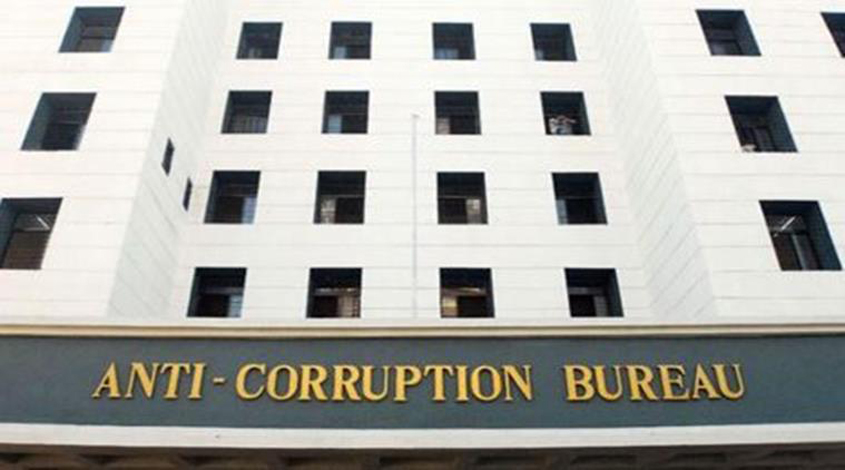Many government officials arrested by the Anti-Corruption Bureau (ACB) sleuths are able to get off scot free from the cases levelled against them in no time, thanks to the inflated value of their assets in the charge-sheets. Most of the disproportionate assets (DA) cases filed against these big fish are not standing the legal scrutiny due to wide gap between the actual value and the market value of the assets of the accused.
The ACB cops of Andhra Pradesh and Telangana states have caught over a dozen big fish-top officials in the key revenue generating departments-in the last three years. Each of them is accused of amassing assets worth not less than Rs 2 crore to Rs 500 crore. But a review of the cases done by The Sunday Guardian this week showed that most of them are either out on bail or have managed to get the cases against them dropped by the government.
On Tuesday, Andhra Pradesh ACB cops arrested the director of Urban Town Planning, Municipal Administration Department, G. Venkata Raghu, and his henchman in the same office, junior technical officer, N. Siva Prasada Rao, on charges of amassing assets disproportionate to their known sources of income.
The ACB, in one of its biggest operations, conducted simultaneous raids at 23 places in three states–AP, Telangana and Maharashtra for three days from Tuesday. It claimed to have unearthed assets worth around Rs 500 crore of market value from them. The cops have focused on the benami assets held by Sivaprasad’s wife C. Gayatri, a town planning official who took voluntary retirement two years ago.
In another first, the ACB sleuths have arrested two officials and Gayatri, who is not in service now, under various sections and sent them to judicial remand. The cops have detected several buildings and lands registered under the names of the three since 1988 when Raghu joined the government service as a lower division clerk.
The illegal assets included a hotel in temple town Shiridi in Maharashtra and some lodges in Hyderabad and lands and residential plots in Guntur and Vijayawada in AP. Raghu and Siv Prasad were working in the town planning wing of AP municipal administration and they enjoyed the power to approve real estate layouts in and around new capital city, Amaravati.
The anti-corruption wings of other states have shown interest in the case as it covered three states. But a section of the officials in the municipal administration department in AP is of the view that the fact that the value of the illegal assets of Raghu, Siva Prasad and his wife have been pegged at Rs 500 crore might dilute the case.
“The Municipal administration department and town planning wing, which have powers to approve layouts in urban areas, account for a large number of ACB cases in the last two decades. But a review of these cases show that most of them were either dropped after ACB investigation or were struck down by the courts,” a senior municipal administration official from AP told this newspaper.
The official who preferred not to be quoted said that the ACB press release on Wednesday put the market value of the assets of Raghu and Siva Prasad and his wife at Rs 500 crore, but their actual registration value is of Rs 4.06 crore.
Similarly, ACB of Telangana arrested B. Jyothi Kiran, an excise superintendent who wields the power to regulate wine shops and bars and restaurants in Nizamabad, on Wednesday and showed his ill-gotten assets to be worth Rs 4 crore. The assets are in the form of lands, residential plots and flats in some apartments and gold.
Insiders in the excise department told this newspaper that the actual value of Jyoti Kiran›s assets would be around Rs 18.07 lakh. Same is the case with a few more arrests made by Telangana ACB in the last one year. A revenue official’s illegal assets are shown at a value of around Rs 200 crore, but their registration value was around Rs 35 lakh. Now the official is back on duty.
The ACB’s method of calculating the value of illegal assets is under question. The ACB cops count the household articles at the current market value, while their actual value after depreciation is much less.
The ACB in Andhra Pradesh has arrested 624 officials under corruption cases from 2 June 2014 to 26 September 2017. Of them, 503 are bribery cases (caught red-handed while accepting bribes) and the remaining 121 are DA (disproportionate assets) cases.
The conviction rate in bribery cases, which involves junior officials, is higher at around 45%, while that in the DA cases is very less, around 10%, officials in the AP ACB told this newspaper. The officials said the accused in DA cases, who are big fish, save their skin by virtue of strong legal defense.
“In the bribery cases, the evidence is be strong as the employees are caught red-handed while accepting (receiving) the cash from the victims. But in the DA cases it is difficult to prove the market value of the assets of the accused. The accused also have strong political connections and they get their cases dropped,” said a former legal counsel of ACB in undivided AP.
When this lawyer, who preferred anonymity, was in service, the ACB sleuths had arrested an IPS official, J.J. Murali, SP of Visakhapatnam, in connection with a DA case. But the cops could not prove the excessive value of his assets and the government denied them the permission to prosecute him. The IPS official retired in 2012 and the HC struck down the case for want of government permission.
As of now, the AP ACB has sought prosecution of 223 officials in corruption cases, but the government has granted permission only in 157, which are mostly bribery cases.

